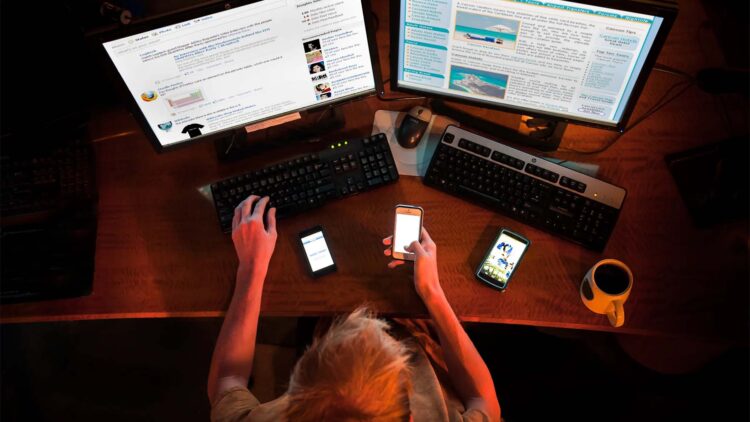For the majority of people, using the internet is a part of nearly every activity we engage in, including work, school, social media, gaming, and leisure. However, for some people using the internet becomes a trap rather than a choice. Lauren, an internet addict, who describes her previous online life as: “this kind of living nightmare,” experienced it.
Her story shows the inner symptoms of internet addiction, which go beyond “liking screens too much” to include feeling like they control your entire day. It also demonstrates that recovery is possible with support and some very real reflection.
When gaming and scrolling take over
Lauren claims that her childhood obsession with video games on her Nintendo 64 marked the beginning of her long relationship with screens. It became much more than just enjoyable over time: “I felt like I had no quality of life. I was miserable the whole time, and I couldn’t really explain to people why I was so unhappy. I was very confused why I seemed to just keep blowing off the things that were important to me.”
She spent her days using the internet and scrolling without end. Her social circle shrank. Her home life collapsed; she even neglected to clean her apartment, which had a flea infestation. She was unable to fall asleep at night due to insomnia, that kept her awake because of to the constant stimulation from the internet.
“Gaming disorder” was formally added to the World Health Organization’s list of illnesses in 2018. Acknowledging that can causes stress, harm, and a sense of losing control over your own time.
This is how Laura describes it: “I thought that maybe I had an anxiety disorder or it was depression. But none of that ever seemed to really explain what I was experiencing, which was that every morning I would get up. I would have a plan for the day, goals that I wanted to accomplish. But then, it was really not up to me. It just was always up to my addiction.”
Technology Addicts Anonymous (ITAA)
Lauren looked for assistance from Internet and Technology Addicts Anonymous (ITAA), a group that provides free support to individuals dealing with a variety of digital compulsions, including those related to social media, phones, video platforms, TV, gaming, news, pornography, dating apps, online shopping, endless research, and even artificial intelligence (AI) tools.
ITAA help members to identify their “bottom lines,” which usually are some specific apps, websites, platforms, or gadgets that can encourage them to become addicted; websites that promote unhealthy behavior, like YouTube, TikTok, Reddit, or particular kinds of fan fiction.
Do I have an internet addiction?
The group offers a list of questions for introspection. They ask people to honestly respond to these ten questions:
- Do I ever go online to quickly check something and then discover that hours have passed?
- Do I ever swear off or set limits around a particular app or online activity, and then break my commitments?
- Do I have internet and technology binges that last all day or late into the night?
- Do I reach for my devices whenever I have free time?
- Does my internet and technology usage lead me to neglect my personal hygiene, nutritional needs, or physical health?
- Do I feel isolated, emotionally absent, distracted, or anxious when I’m not online?
- Does my internet usage contribute to conflict or avoidance in personal relationships?
- Have the negative consequences of my internet usage jeopardized my studies, finances, or career?
- Do I hide or lie about the amount of time I spend online or the kinds of digital content I consume?
- Do I feel guilt or shame around my internet use?
Finding a healthier way to be online
“Now, in recovery, I understand… There’s no reason for me to avoid computers. I’m able to use them in a way that supports my life.” Laura stated.
